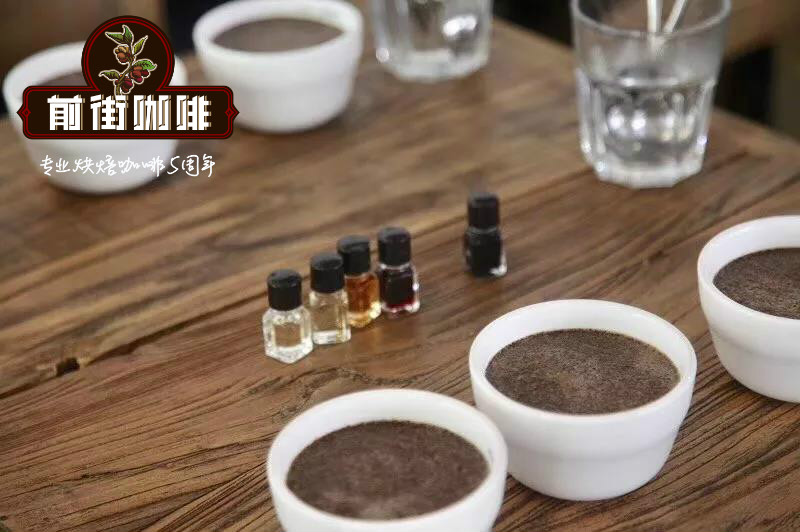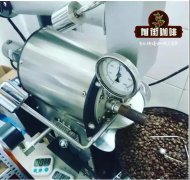Coffee beans roasted more bitter, what other factors affect the bitter coffee?
Professional coffee knowledge exchange more coffee bean information please follow the coffee workshop (Wechat official account cafe_style)

The bitterness of coffee has always been controversial. Some people say: how can it be called coffee if it is not bitter? Some people say: good coffee has a pleasant bitterness. There are many people say: good coffee should not have a bitter taste! Suffering is not good!
And why on earth is coffee bitter? It is thought that caffeine is responsible for the bitter taste of coffee, but in fact, caffeine accounts for only 10% of the bitter taste. The concentration of caffeine in roasted beans is not affected by the degree of roasting, and decaf coffee also has a bitter taste, so we can be sure that caffeine is not the whole cause of bitterness. So what is the other 90% bitterness?
One of the root causes of the bitterness of coffee is brown pigment. Brown pigments are also roughly classified according to molecular size, and macromolecular brown pigments are more bitter. With the deepening of the baking degree, the amount of brown pigment will increase, and the proportion of macromolecular brown pigment will also increase. So deep-roasted coffee beans are more bitter and textured-which is consistent with our daily impressions.
The bitterness and texture of Arabica and Robeska are different, which is caused by the difference in the quantity and molecular size of brown pigment. Because the sugar content of Robeska is lower than that of Arabica, it is not easy to "caramelize", so it is easy to form macromolecular brown pigment, so the baked Robeska is more bitter.
A research team led by Professor Thomas Hofmann, a food chemist at the University of Science and Technology in Munich, Germany, deeply explored the bitter factors of coffee. With the help of high-tech chromatographic analysis technology and molecular sensory technology, and with the help of a group of professional taste testers trained for many years, Hoffman's research team confirmed that chlorogenic acid lactone and phenyllindane were the two most bitter compounds in coffee.
Hoffman points out that chlorogenic acid itself is not bitter and is a beneficial antioxidant, but its degradation products chlorogenic acid lactone and phenyllindane in the baking process are very bitter. Scientists have identified the bitterest ingredients of coffee and are now working on how to remove the bitter parent chlorogenic acid from raw beans, or how to remove chlorogenic acid lactone or phenyllindane from coffee drinks to make coffee more palatable. However, once successful, it means that there are no more antioxidants in coffee that are beneficial to the body. Whether it is a blessing or a curse still needs to be considered.
Important Notice :
前街咖啡 FrontStreet Coffee has moved to new addredd:
FrontStreet Coffee Address: 315,Donghua East Road,GuangZhou
Tel:020 38364473
- Prev

What is the effect of temperature on a cup of coffee? How to pay attention to this influence
Professional coffee knowledge exchange more coffee bean information please follow the coffee workshop (Wechat official account cafe_style) in a cup of coffee, 98% is water, the temperature of the water will determine the taste of the coffee in the end. In the brewing process, water and coffee will undergo some complex chemical reactions, and the water temperature will directly affect the extraction rate of different components in the coffee during brewing. The water will be extracted.
- Next

How do I use the coffee flavor wheel? If you use the flavor wheel to improve your ability
Professional coffee knowledge exchange more coffee bean information Please follow the coffee workshop (Wechat official account cafe_style) you will always see the same picture in all kinds of cafes, that is the coffee flavor wheel. Maybe you are familiar with the appearance of the coffee flavor wheel, but for many people, let's make a basic understanding of what the flavor wheel is. In the coffee flavor round.
Related
- Beginners will see the "Coffee pull flower" guide!
- What is the difference between ice blog purified milk and ordinary milk coffee?
- Why is the Philippines the largest producer of crops in Liberia?
- For coffee extraction, should the fine powder be retained?
- How does extracted espresso fill pressed powder? How much strength does it take to press the powder?
- How to make jasmine cold extract coffee? Is the jasmine + latte good?
- Will this little toy really make the coffee taste better? How does Lily Drip affect coffee extraction?
- Will the action of slapping the filter cup also affect coffee extraction?
- What's the difference between powder-to-water ratio and powder-to-liquid ratio?
- What is the Ethiopian local species? What does it have to do with Heirloom native species?

